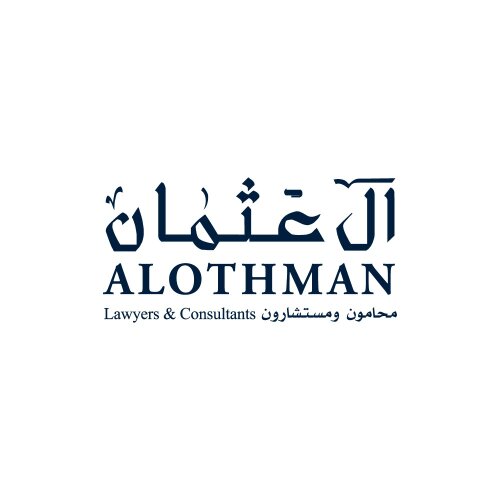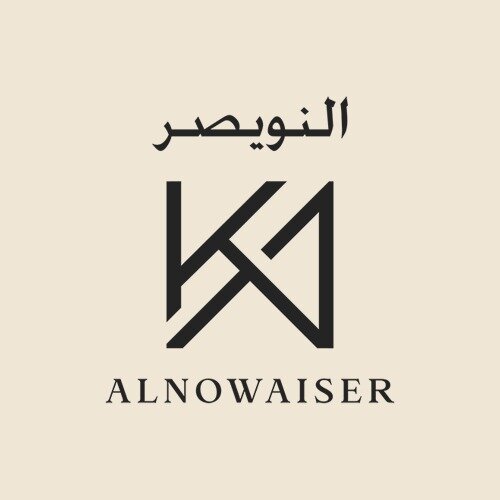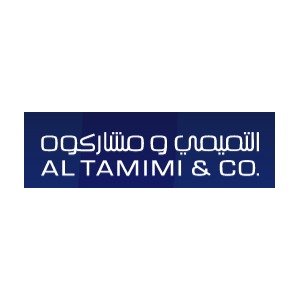Best Project Finance Lawyers in Riyadh
Share your needs with us, get contacted by law firms.
Free. Takes 2 min.
List of the best lawyers in Riyadh, Saudi Arabia
About Project Finance Law in Riyadh, Saudi Arabia
Project finance is a specialized area of law and finance that focuses on funding major infrastructure and industrial projects, such as energy plants, oil and gas facilities, transportation infrastructure, and large-scale construction developments. In Riyadh, Saudi Arabia, project finance has become increasingly important as the Kingdom pursues ambitious projects under its Vision 2030 initiative, which includes investments in renewable energy, transportation, entertainment, and real estate. Project finance structures typically involve complex contractual frameworks, multiple parties, and various sources of debt and equity, often with recourse limited to the assets and revenue of the project itself rather than the balance sheets of project sponsors.
Why You May Need a Lawyer
Engaging a legal expert in project finance is crucial for several reasons. Common situations where legal help may be required include:
- Drafting and negotiating finance agreements, such as loan and security documents
- Structuring joint ventures and consortiums for large projects
- Negotiating with government authorities on permits, licenses, and regulatory matters
- Conducting due diligence to identify potential legal and financial risks
- Advising on compliance with local and international laws, including Sharia principles
- Resolving disputes between stakeholders, contractors, or lenders
- Preparing and reviewing key project documents, including EPC (Engineering, Procurement, and Construction) contracts and offtake agreements
- Advising on securities, guarantees, and lender protection mechanisms
Given the high stakes, complexity, and significant financial commitments involved in project finance, professional legal guidance is essential to safeguard your interests and ensure project success.
Local Laws Overview
Project finance in Riyadh falls under a patchwork of national and local regulations, as well as principles derived from Islamic law (Sharia). Some key legal aspects to consider include:
- Foreign Investment Regulations: The Saudi Arabian Investment Law permits foreign investors to participate in project finance, subject to licensing and approval from the Saudi Arabian General Investment Authority (SAGIA).
- Sharia Compliance: All finance activities must adhere to Islamic finance principles, which impact contract structures and prohibit elements like interest (riba) and excessive risk (gharar).
- Saudi Companies Law: Governs the formation and operation of project companies, incubators, and special purpose vehicles (SPVs) used in project finance.
- Securities Law: Regulates the issuance of bonds (sukuk) and other instruments often used for project financing.
- Construction and Procurement Regulations: Local laws impact contracts with EPC contractors and suppliers.
- Public Private Partnership (PPP) and Privatization Law: Sets the framework for government involvement, concession agreements, and partnerships with private entities in infrastructure projects.
- Dispute Resolution Mechanisms: Arbitration is a common method for resolving disputes, and Riyadh hosts the Saudi Center for Commercial Arbitration (SCCA).
Local regulations are continuously evolving to foster a more attractive and transparent investment climate, but compliance requires careful navigation with legal support.
Frequently Asked Questions
What is project finance and how is it different from traditional financing?
Project finance is a method where the financing for a specific project is secured primarily by the cash flows and assets of the project rather than the sponsors’ own balance sheet. This is different from traditional financing, where lenders rely on the general creditworthiness of the borrower.
What are common types of projects funded through project finance in Riyadh?
Typically, large infrastructure projects such as power plants, water desalination facilities, renewable energy parks, transportation networks, large-scale housing developments, and industrial complexes are financed through project finance methods.
Do foreign investors face restrictions when participating in project finance in Saudi Arabia?
Foreign investors are welcome but must obtain licenses and approvals from authorities like the Ministry of Investment. There may be sector-specific limitations and requirements for having a local partner in certain industries.
How does Islamic law impact project finance structures?
Islamic law prohibits the payment or receipt of interest and mandates risk and profit sharing. As a result, many project finance deals utilize structures such as Ijara (leasing), Murabaha (cost plus financing), and Sukuk (Islamic bonds) instead of conventional loans.
What government approvals are usually required for project finance deals?
Approvals may include investment licenses, environmental and zoning clearances, permits for construction or operation, and compliance with labor and Saudization regulations. The checklist depends on the project’s nature and sector.
What are the main risks in project financing in Riyadh?
Risks include political and regulatory changes, construction delays, cost overruns, currency fluctuations, and changes in local laws, including those related to Sharia compliance.
Is security for lenders in project finance enforceable under Saudi law?
Security packages are permitted and usually include assignments of project receivables, pledges over project assets, and sponsor guarantees. Enforceability depends on compliance with local regulations and court recognition.
How are project-related disputes typically resolved?
Most disputes are resolved through arbitration, commonly at the Saudi Center for Commercial Arbitration (SCCA) in Riyadh. Parties may also agree to mediation or recourse to Saudi courts.
Can project finance deals be structured using both conventional and Islamic finance?
Yes, hybrid structures are common, allowing for participation by both conventional and Islamic banks, provided the overall arrangement complies with local regulations and Sharia principles.
What role do government guarantees play in project finance transactions?
In certain sectors deemed of national importance, government guarantees or undertakings may be provided to enhance bankability and mitigate risks, especially in Public Private Partnerships (PPPs).
Additional Resources
For further information and guidance, the following Saudi Arabian institutions and bodies can be valuable:
- Ministry of Investment (MISA): Responsible for licensing and regulating foreign investment
- Saudi Center for Commercial Arbitration (SCCA): Offers arbitration and dispute resolution services
- Capital Market Authority (CMA): Regulates securities and capital markets, including Sukuk issuances
- Saudi Arabian Monetary Authority (SAMA): Supervises the banking sector and financial institutions
- Ministry of Justice: Provides legal framework and court services for dispute resolution
- Riyadh Chamber of Commerce and Industry: Offers business support and local insights
- Specialized law firms in Riyadh with expertise in Project Finance
Next Steps
If you are considering undertaking or investing in a project that requires complex financing in Riyadh, it is recommended to:
- Identify and engage a reputable local or international law firm with expertise in project finance and deep knowledge of the Saudi legal environment
- Prepare clear documentation outlining your objectives and the nature of your intended project
- Schedule an initial consultation to assess regulatory requirements, potential risks, and available structures
- Work with your legal advisor to conduct due diligence, negotiate contracts, and secure all necessary permits and licenses
- Stay informed about regulatory changes and ongoing compliance responsibilities throughout the project lifecycle
Early and ongoing legal guidance can help navigate complex regulations, minimize risks, and ensure the successful completion of your project finance transaction in Riyadh, Saudi Arabia.
Lawzana helps you find the best lawyers and law firms in Riyadh through a curated and pre-screened list of qualified legal professionals. Our platform offers rankings and detailed profiles of attorneys and law firms, allowing you to compare based on practice areas, including Project Finance, experience, and client feedback.
Each profile includes a description of the firm's areas of practice, client reviews, team members and partners, year of establishment, spoken languages, office locations, contact information, social media presence, and any published articles or resources. Most firms on our platform speak English and are experienced in both local and international legal matters.
Get a quote from top-rated law firms in Riyadh, Saudi Arabia — quickly, securely, and without unnecessary hassle.
Disclaimer:
The information provided on this page is for general informational purposes only and does not constitute legal advice. While we strive to ensure the accuracy and relevance of the content, legal information may change over time, and interpretations of the law can vary. You should always consult with a qualified legal professional for advice specific to your situation.
We disclaim all liability for actions taken or not taken based on the content of this page. If you believe any information is incorrect or outdated, please contact us, and we will review and update it where appropriate.

















